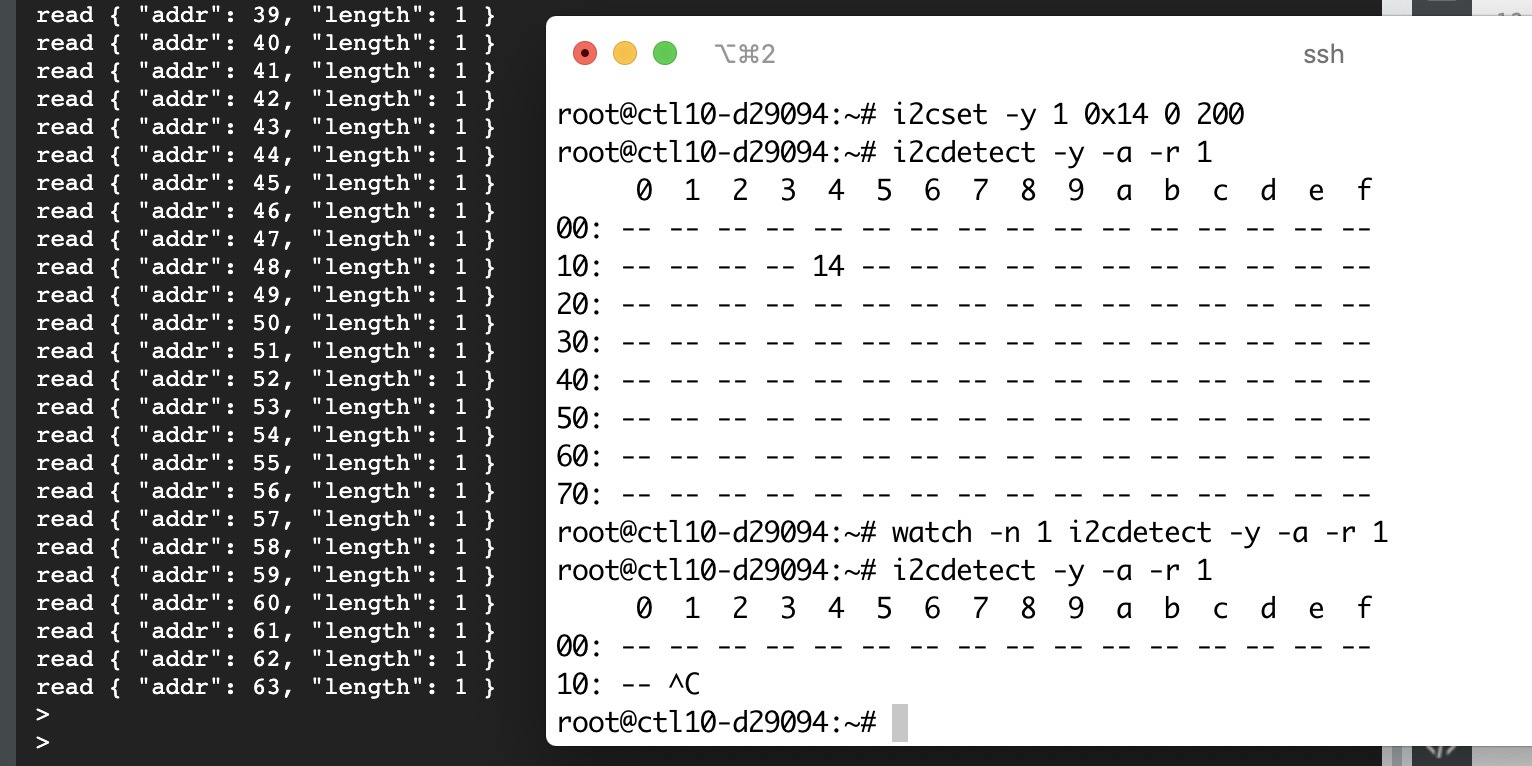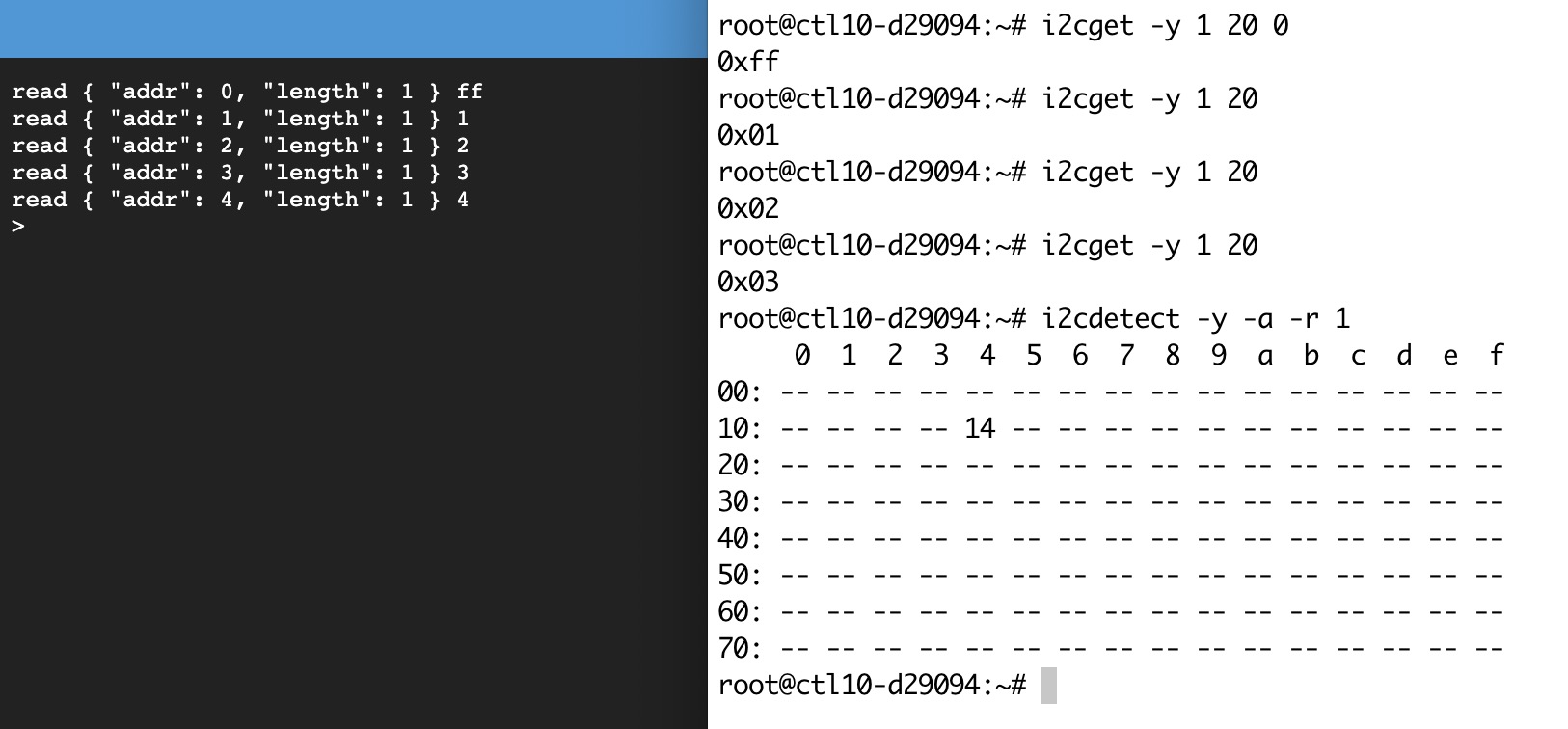@MaBecker: I2C Slave support has just been added to nRF52 builds with 77a60d935908c8837465a59cbb905407ec2e47b4
Use as follows:
Add this to the BOARD.py makefile section:
'DEFINES += -DI2C_SLAVE -DTWIS_ENABLED=1 -DTWIS1_ENABLED=1' # enable I2C slave supportThen on the device:
I2C1.setup({scl:D22,sda:D23,addr:20});
I2C1.on('read',x=>print("read",x));
I2C1.on('write',x=>print("write",x));
print(I2C1.buffer)So there's a 64 byte Uint8Array called buffer added to I2C1 when addr:xyz is supplied. Then you get events when a read or write has happened, and you can read/write what is in the array (which will have already changed after the write has happened).
On the I2C master it's like every other I2C device:
var i = new I2C();
i.setup({scl:D14,sda:D15});
function writeData(addr, data) {
i.writeTo(20,addr,data);
}
function readData(addr, len) {
i.writeTo(20,addr);
return i.readFrom(20,len);
}





JS execution speed is really too slow to properly do something via an IRQ, but there could be an array of data that can be read out...
http://forum.espruino.com/conversations/273112/